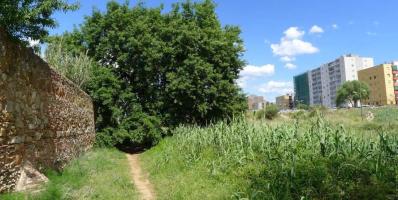Mariona Ferrandiz Rovira
I hold a PhD in population ecology from the Université Claude Bernard Lyon 1 (France). I am currently a CREAF researcher, associate professor at the Ecology Unit (Department of Animal and Plant Biology and Ecology) of the Universitat Autònoma de Barcelona (UAB) and co-creator of Replantegem.
Much of my research is in the fields of evolutionary biology and lately in urban biodiversity. I have always considered it important to promote the conservation of biodiversity, both in natural areas and in more urbanised areas such as cities, where the involvement of multidisciplinary teams and citizens is necessary to achieve this key challenge for our society.
I investigate the causes and consequences of genetic diversity and behaviour in natural populations, such as the alpine marmot (Marmota marmota), the wood mouse (Apodemus sylvaticus), the Mediterranean tortoise (Testudo hermanni) and the jackdaws (Corvus monedula). I also study the quality of the urban fabric related to the biodiversity it contains and people's quality of life in different cities, such as Sabadell and Barcelona. I also coordinate and participate in different initiatives related to environmental education and university teaching.
Interests:
Urban forests
Evolutionary ecology
Sexual selection
Behavioural ecology
Next generation sequencing
Population genetics
Teaching
Environmental education
Citizen science







